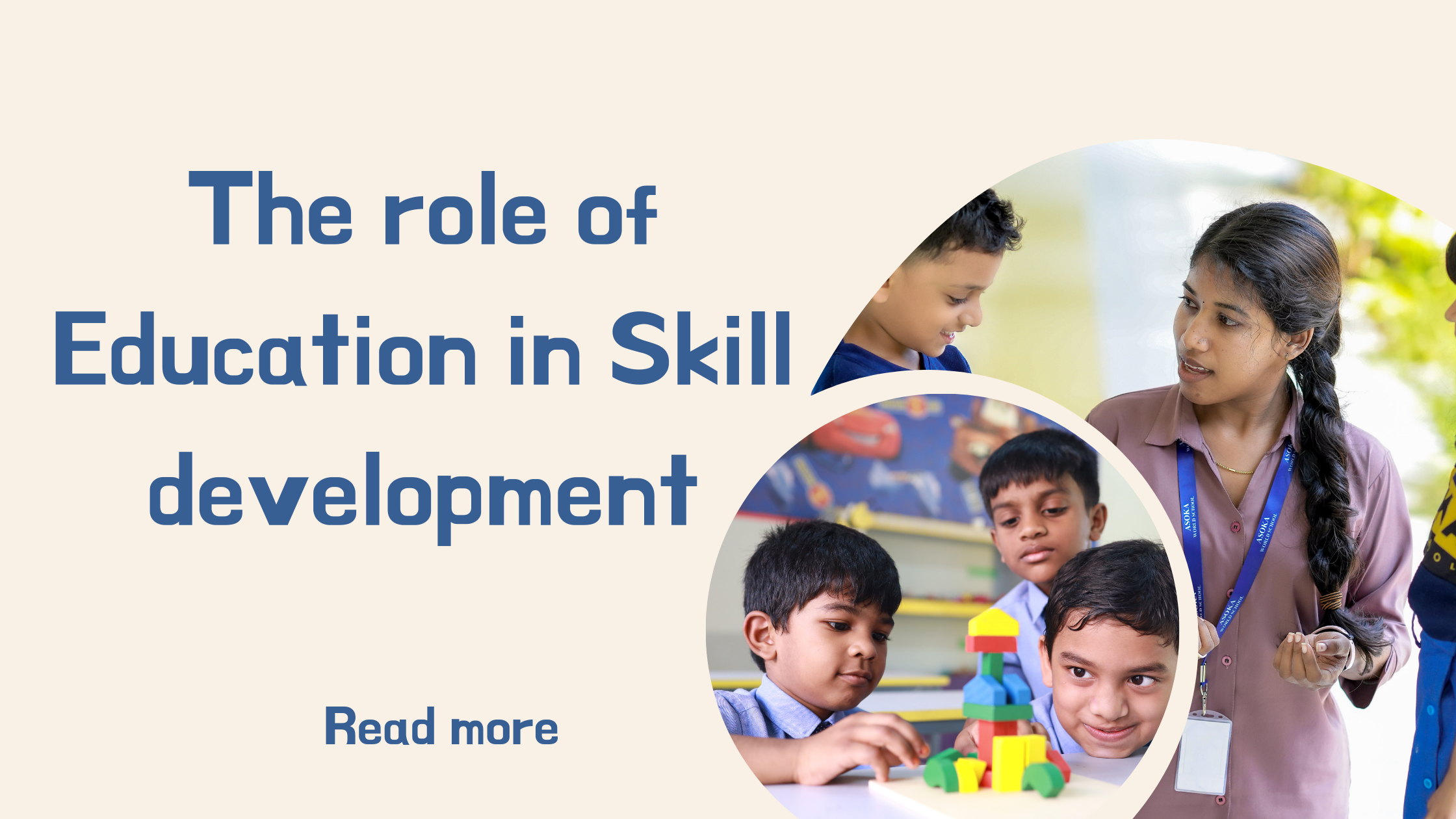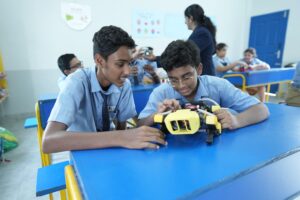
The Role of Education in Skill Development
Our education system has been prioritizing rote learning and theoretical knowledge over skill-based education. But, the dynamic 21st century demands practical skills. This is where our education system falls short of equipping students for the 21st-century workforce. The lack of skills needed for the 21st-century workforce is one of the main reasons why our youngsters cannot seize the opportunities in the job market.
If we go through the statistics, a major chunk of unemployed youths belongs to the category of overqualified and highly educated folks. But, the issue is the absence of vocational skills. Data from the International Labor Organization (ILO) and the National Council for Skill Development and Entrepreneurship (NCSDE )predicts a 29 million skill deficit by 2030. Likewise, currently, 53% of Indian businesses encounter difficulties in finding the right talent for their enterprises due to the lack of skilled people.
All this data reminds us of the need to incorporate skill development in education. It is one of the finest ways for students to acquire the necessary skills to seize opportunities in the skill-based job market. Hence, prioritizing skill education is the need of the hour. Accordingly, schools have to focus on experiential learning and the practical application of knowledge. It will redefine our education system in a way that prepares students to navigate through the highly competitive world.


Essential skills to be included in our education system
#1. Cognitive skills
Cognitive skills like the ability to solve problems and think critically help individuals to make informed decisions and conquer challenges in life.
#2. Communicate skills
Communication plays a crucial role in personal as well as professional lives. Hence, education should impart the art of articulation through various skill development programmes.
#3. Social and emotional skills
These skills help individuals to identify and manage emotions. Thus, they can forge meaningful relations with fellow human beings. That is why incorporating various aspects of social and emotional skills in education is significant.
#4. Innovation
Today’s globalized economy and dynamic market demand innovation and creativity. Whether it is about entrepreneurship or adapting to rapid changes, innovation stands at the forefront.
Why Role of skill development is crucial in education?

There are various reasons to justify the importance of skill development in education. Let’s go through the prominent ones.
#1. Education and adaptability
Due to globalization and technological advancements, skills are always in flux. Today’s skills may become obsolete tomorrow. Hence, education should equip students with the necessary skill sets to thrive in this dynamic landscape. Gradually, students will learn to adapt to a globalized environment and a tech-driven world.
#2. Education and entrepreneurship
The foundational bricks of entrepreneurship are innovation, creativity, persistence, and the
willingness to take risks. Through skill development, education can instill these qualities in
children. Thus, children learn to give wings to their ideas by taking calculated risks. Additionally, it
is essential to have platforms where they can express their ideas without any limitations. It
enables them to think out of the box and come up with innovative ideas. In essence, education
should be the one that instills entrepreneurship in children.
#3. The ever-evolving job market and a diverse set of skills.
Today’s dynamic job market demands versatility. Employers are in search of candidates with a
diverse set of skills like problem-solving, critical thinking, and adaptability. These skills go beyond
specific subjects of the current school curricula. Therefore, curricula must incorporate modules
that instill these essential skills in children.
#4. Technological advancements
Technological advancements at a rapid pace signal the uncharted territories lying ahead.
Therefore, skill education that prepares students with various technological skills is paramount.
For instance, schools can include technical subjects like robotics and coding which are high-demand skills. The role of skill development in a tech-driven world is undeniable.
#5. Social and Emotional Learning
Education aims to mould well-rounded and emotionally intelligent individuals. Hence, mere
academic success won’t help students to live a meaningful life. Social and emotional skills are as
equal as any other skill. These skills help children to live as better human beings in our society.
Recognizing the pivotal role they play, schools should include programmes that instill skills such as empathy, teamwork, self-awareness, communication skills, etc. Then only students can
navigate the challenges in both their personal and professional lives effortlessly.
Ways to integrate skill education into the curriculum
#1.National Education Policy (NEP),2020.
The National Education Policy 2020 aims to integrate vocational educational programmes in
schools across the country. Its purpose is to ensure that every student can access at least one
vocational training course.
Similarly, the policy talks about the importance of developing multi-disciplinary capabilities by
integrating mathematics, computer science, and data science. Accordingly, many schools have
incorporated these courses to enhance students’ skill sets.
#2. Focus on the learner-centric model of education.
The role of education in skill development can be realized only when the system adopts a model
that makes the learner the center of learning. This transformative approach is inevitable to meet
the unique needs of each student. Accordingly, curriculum planning and instructional methods
should consider the strengths and interests of students. This shift towards the learner-centric
model of education holds the potential to accommodate various skill sets needed for the 21st
century.
#3. Implement project-based learning
Provide avenues for students to experience project-based learning. It demands the combined
action of research, collaboration, and problem-solving. As a result, they acquire various skills like
project management and teamwork.
#4. Ensure industry collaboration
Incorporate modules that demand industry visits. Besides, arrange workshops on emerging
trends in various industries. This will give students some introductory knowledge about the skills
the market demands.
This is how Asoka World School incorporates skill development in education
Being one of the pioneers of revolutionary education in Kochi, we are committed to equipping our
children with the right tools to navigate the challenges of today’s competitive world. Hence, we
give utmost importance to the skill development of our children. Accordingly, our approach is
aligned with the National Education Policy of 2020. Thus, we integrate diverse elements of the
NEP to foster multi-disciplinary capabilities needed for the 21st century. Our curriculum goes
beyond conventional learning and prioritizes the practical application of knowledge. It provides
platforms for students to experience real-world scenarios. For instance, we have included various
cutting-edge programmes like Robotics and STEM. Thus, we equip students with hands-on
experiences. At Asoka World School, one of the best CBSE schools in Kochi, we acknowledge the
crucial role of education in skill development. Hence, we meticulously craft modules that are in
tune with the ever-evolving global landscape.
Conclusion
We live in a world where competency and skill sets have gained supremacy. Therefore the role of
education in skill development holds greater prominence in today’s world. We must equip our children with the necessary skill sets to thrive and excel in today’s dynamic environment.



